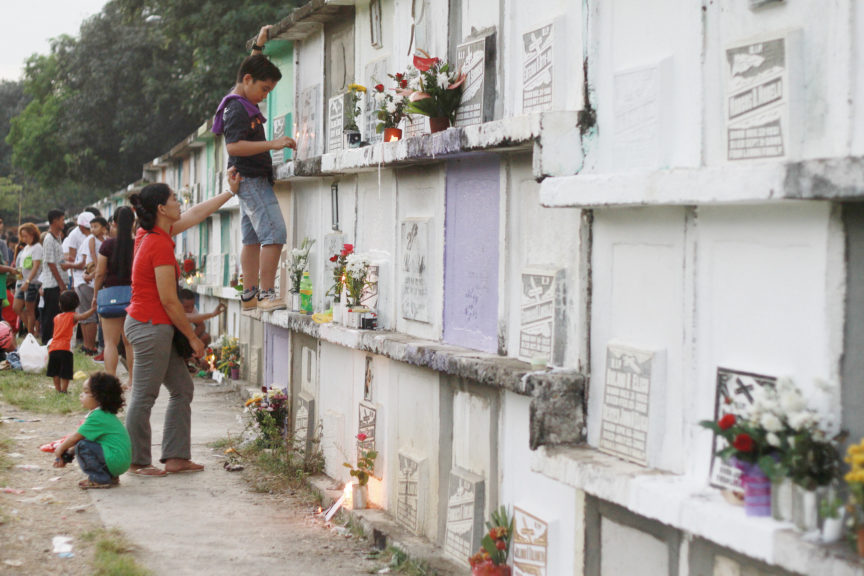DAVAO CITY (MindaNews / 25 September) – A 24/7 ban on alcoholic beverages has been implemented in all cemeteries and funeral parlors in Davao City for the duration of the state of calamity or until September 12, 2021, due to the coronavirus disease (COVID-19) pandemic.
This new measure was among the restrictions provided in Mayor Sara Duterte’s Executive Order 52, which was released on Thursday to regulate the operation of funeral parlors, cemeteries, memorial parks, and columbariums to curtail spread of the disease through mass gathering.
“The medical specialists identify mass gatherings as a source of the spread of the COVID-19 virus,” she said in her order.
 The Roman Catholic Cemetery in Davao City, MindaNews file photo
The Roman Catholic Cemetery in Davao City, MindaNews file photo
Duterte lifted the 24/7 ban on liquors last Monday after nearly six months, allowing “restaurant and fast food businesses” to sell only two servings of alcoholic drinks per customer, except for beer houses, nightclubs, bars, beer gardens and other establishments whose primary business is serving liquors.
The mayor ordered that only the family members of the dead would be allowed to attend wakes and burials.
She said families must ensure there is no mass gathering among attendees, and basic health protocols are observed. They must also keep a record of the date and time of their visit for contact-tracing, and only occupy half of the venue’s capacity during these activities.
Adopting Resolution No. 72 of the Inter-Agency Task Force for the Management of Emerging Infectious Diseases, the local government has limited the number of visitors to a maximum of 30 percent of the entire area of the cemetery, memorial park or columbarium from September 17 to November 15, 2020.
It has closed these areas from October 29 to November 4, except for groups who will bury their family members and those who will celebrate the birthdays or death anniversaries of the deceased that fall on those dates.
According to the Department of Health-Davao, the region has a total of 2,873 cases with 2,273 recoveries and 83 deaths.
Of this total, 1,783 are in Davao City, 225 in Davao de Oro, 339 in Davao del Norte, 175 in Davao del Sur, 58 in Davao Occidental and 257 in Davao Oriental. (Antonio L. Colina IV/MindaNews)
